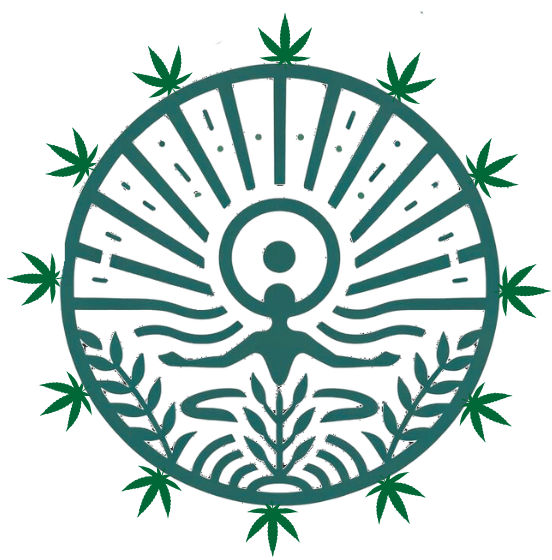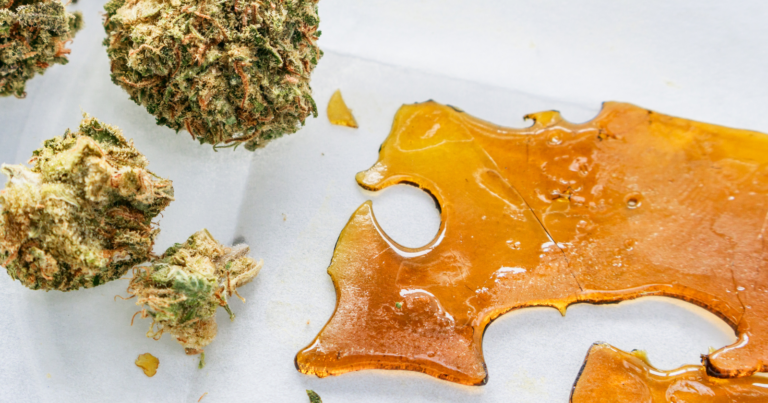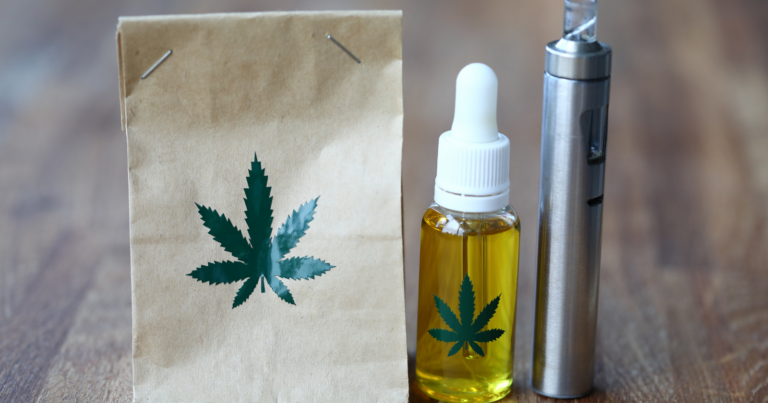Did you know that CBD can be used to support addiction recovery?
In fact, CBD has the potential to alleviate withdrawal symptoms, reduce cravings, and even treat underlying issues often associated with addiction such as anxiety or depression.
This naturally occurring compound, found in cannabis plants, interacts with the body’s endocannabinoid system to regulate mood, pain, and other functions, providing a viable alternative to traditional addiction treatments.
In this article, we explore how CBD interacts with the body’s natural systems to potentially ease the journey toward recovery, examine relevant studies, and consider what this means for those struggling with addiction.
How CBD aids in addiction recovery
CBD provides assistance in addiction recovery through a variety of ways.
First, it helps in managing withdrawal symptoms. These are typically physical and mental discomforts that occur after stopping or reducing intake of addictive substances.
CBD interacts with the body’s endocannabinoid system to help manage common symptoms like pain, anxiety, and mood swings.
Here are some of the main ways CBD can help you with addiction:
- Alleviates withdrawal symptoms: Regular use of CBD can help alleviate physical withdrawal symptoms such as nausea, insomnia, and pain. By interacting with the body’s serotonin receptors, it can also help manage anxiety and depression often associated with substance withdrawal.
- Reduces cravings: CBD has been found to reduce cravings for drugs and alcohol. This is crucial in preventing relapse and ensuring successful long-term recovery.
- Treats underlying issues: Many individuals turn to substance use as a coping mechanism for issues like stress, anxiety, or depression. CBD can help manage these underlying conditions, reducing the need for substance use.
Now, let me focus on some of these benefits and discuss them more thoroughly.
1) Reducing cravings and withdrawal symptoms
One of the major challenges in addiction recovery is managing cravings and withdrawal symptoms, right?
Well, CBD may provide a solution for this.
Research indicates that CBD can help reduce cravings for tobacco and heroin.
In a randomized clinical trial with 42 participants, heroin addicts who took CBD experienced reduced drug cravings and reduced levels of anxiety.
Interestingly, the effects were long-lasting, with some participants reporting benefits up to a week after the last dose of CBD.
Besides, CBD’s impact on withdrawal symptoms is also noteworthy.
Withdrawal symptoms can range from physical discomfort to psychological distress. By exerting a calming effect on the central nervous system, CBD may help to ease these symptoms.
2) Supporting mental health during recovery
Addiction recovery is not just about the physical struggle but also entails a significant psychological battle.
Mental health issues like anxiety, depression, and stress often co-exist with addiction, making the recovery process even more challenging.
Perhaps not surprisingly, CBD, with its proven anti-anxiety and anti-depressant properties, can provide much-needed support in this aspect.
Research has shown that CBD can have a calming effect on the central nervous system, reducing anxiety and creating a sense of calm.
Additionally, it can also help to regulate mood and social behavior, which can be particularly beneficial for individuals in recovery.
3) Alleviating physical discomfort
Apart from the psychological benefits, CBD can also provide relief from the physical discomfort often associated with addiction recovery.
For many individuals, withdrawal symptoms can be physically painful, which adds another layer of difficulty to the recovery process.
However, CBD’s known analgesic properties can come in handy here.
As I mentioned, CBD has been found to interact with our body’s endocannabinoid system, influencing how we perceive and manage pain.
By doing so, CBD can potentially reduce the physical discomfort experienced during addiction recovery.
Furthermore, if you’re worried about the side effects of over-the-counter pain medications, CBD can serve as a natural alternative.
Its non-addictive nature ensures that you get the required pain relief without the risk of developing a new dependency.
Safety and legality of CBD
When considering CBD for addiction recovery, it’s imperative to understand its safety and legality.
It’s true that CBD is generally safe for use, with many users experiencing minimal side effects. But it’s still related to various side effects that you should know about.
Common side effects include drowsiness, dry mouth, and low blood pressure.
However, it’s important to note that everyone’s body responds differently to CBD, so individual experiences may vary.
When it comes to the legality of CBD, it varies widely depending on geographical location.
In the United States, for instance, hemp-derived CBD is legal at the federal level but state laws may vary. It’s crucial to understand local laws before purchasing or using CBD.
In essence, having a grasp on the safety profile and legality of CBD is essential when considering it as an aid in addiction recovery.
Usage and dosage of CBD
Incorporating CBD into your addiction recovery process requires understanding the correct usage and dosage.
While there is no one-size-fits-all dosage, it’s generally recommended to start low and go slow, gradually increasing until you find a dose that provides the desired benefits without side effects.
- Usage of CBD: CBD can be consumed in various forms such as oils, tinctures, capsules, edibles, and topicals. The method of consumption can impact how quickly you feel the effects, so choose a method that suits your needs and preferences.
- Dosage of CBD: Start with a low dose, typically between 20-40mg per day, and gradually increase by 5mg each week until you achieve the desired effects. Remember that factors such as body weight, metabolism, and the nature of the addiction can affect the optimal dosage.
Testimonials and scientific evidence
Next, let’s focus on some specific studies that prove the effectiveness of CBD for addiction recovery.
In fact, the use of CBD for addiction recovery is supported by both individual testimonials and scientific studies.
Many individuals who have incorporated CBD into their recovery process report reduced cravings, decreased anxiety, and improved overall well-being.
Personal testimonials:
Numerous individuals recovering from substance addiction credit CBD with helping them manage withdrawal symptoms and reduce cravings. These personal accounts provide valuable insights into the potential benefits of CBD in real-world scenarios.
Scientific evidence:
Various studies support the use of CBD in addiction recovery.
For instance, a 2015 review published in Substance Abuse Journal found that CBD may have therapeutic properties on opioid, cocaine, and psychostimulant addictions.
Additionally, a 2019 study in the American Journal of Psychiatry suggested that CBD could help reduce cue-induced cravings and anxiety in individuals with a history of heroin abuse.
These testimonials and research findings provide strong support for the potential role of CBD in aiding addiction recovery.
Final thoughts
As you can see, using CBD for recovering from addiction can be effective. However, it’s a decision that should be made thoughtfully.
First of all, if you’re considering using CBD as part of your recovery strategy, it’s crucial to consult with a healthcare provider or a professional well-versed in CBD use.
It’s also essential to approach CBD use with an open mind and realistic expectations.
While the studies and personal testimonials about CBD’s benefits in addiction recovery are promising, it’s important to remember that everyone’s experience with CBD is unique.
At the end of the day, the goal is to find what works best for you in your recovery journey.
Whether that includes CBD or not, what matters most is your commitment to overcoming addiction and reclaiming your life.












